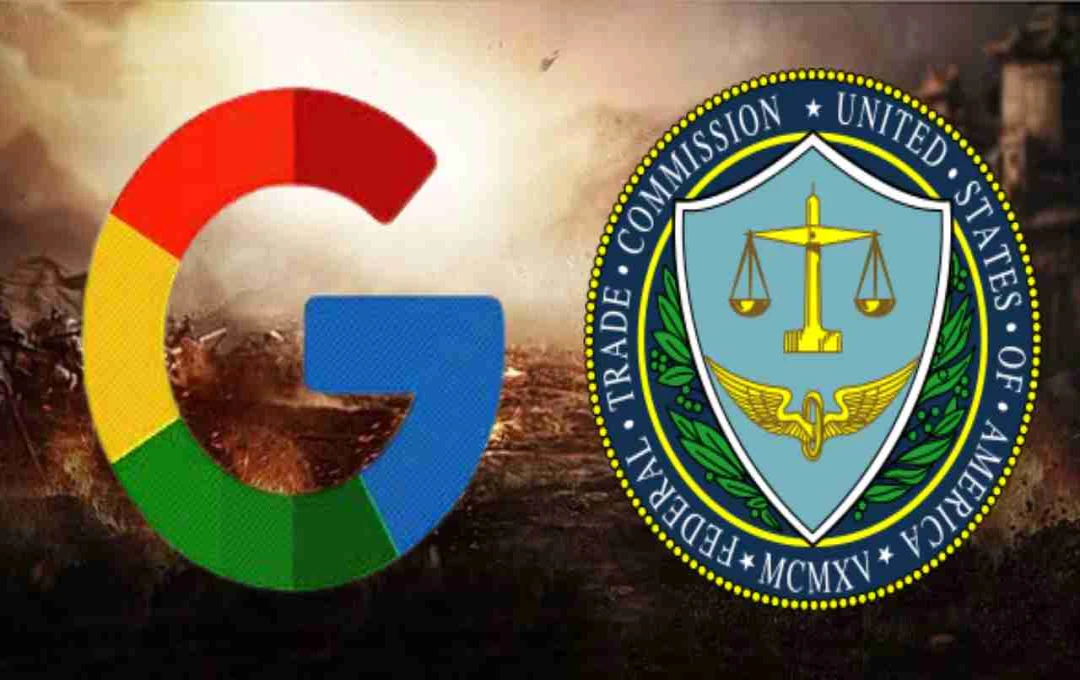Google faces increasing pressure as the U.S. Federal Trade Commission (FTC) sharply criticizes its search engine monopoly. During the ongoing antitrust case initiated by the U.S. Department of Justice (DOJ), the FTC has deemed Google's search dominance dangerously anti-competitive and demanded its dismantling. The FTC's statement asserts that Google's monopoly hinders the growth of smaller businesses, and that the only viable solution is the breakup of the company.
Questioning Google's Search Engine Monopoly
Since launching its web-based search engine in 1998, Google has become the world's most popular search engine. Subsequently, Google launched numerous other products, including Google Ads, Google Chrome, and the Android operating system, further bolstering its success. The company continues to develop new products such as the Google Pixel smartphone and Gemini AI. Through these ventures, Google has solidified its dominance in the digital advertising and search markets.
However, this search engine monopoly has made competition exceedingly difficult for other companies. Smaller businesses, who should have opportunities to establish their own identities, are significantly impacted by Google's market control.
Antitrust Case: The Legal Battle Against Google

The antitrust case against Google in U.S. courts has been ongoing for the past three weeks. Google has attempted to justify its position, attributing its success to technological advancements and market evolution. However, the Federal Trade Commission (FTC), in conjunction with the Department of Justice, maintains that dismantling Google's search engine monopoly is necessary. The FTC argues that Google's dominance stifles online search competition, significantly impacting the digital market.
FTC Warnings and Pressure on Google
According to Reuters, the FTC has issued a b warning to Google. The FTC insists that Google must strengthen its privacy safeguards, particularly concerning data sharing. This implies that the company must elevate its data management standards to ensure consumer data protection. Furthermore, the FTC advocates for the establishment of an oversight body to regularly monitor Google's operations, guaranteeing compliance with regulations and the maintenance of fair market competition.
Should Google Sell Chrome?

The Department of Justice (DOJ) has offered another significant recommendation: Google should divest its web browser, Chrome. This, the DOJ argues, would foster greater market competition and create opportunities for other companies. Currently, Google Chrome boasts over four billion users globally and is intrinsically linked to Google's search engine. Moreover, Google's search engine is utilized by over 35% of internet users, creating a dominant connection.
What Lies Ahead for Google?
The FTC and DOJ actions present a significant challenge to Google's future. An unfavorable court ruling would necessitate the dismantling of its search engine monopoly and necessitate changes across its product portfolio. Additionally, Google will need to significantly improve its data management and privacy practices.
This case serves as a critical example of how large tech companies' monopolies impact smaller businesses and competition. It highlights the need for tech companies to prioritize transparency and promote competition to avoid leveraging their market dominance.

The FTC's decisive action in the ongoing antitrust case against Google underscores the detrimental effects of monopolies and stifled competition, impacting not only smaller businesses but also consumers. To overcome its monopoly, Google will require substantial changes to its business model. It remains to be seen what strategies Google will employ in this legal battle and whether it will be willing to divest its products.














